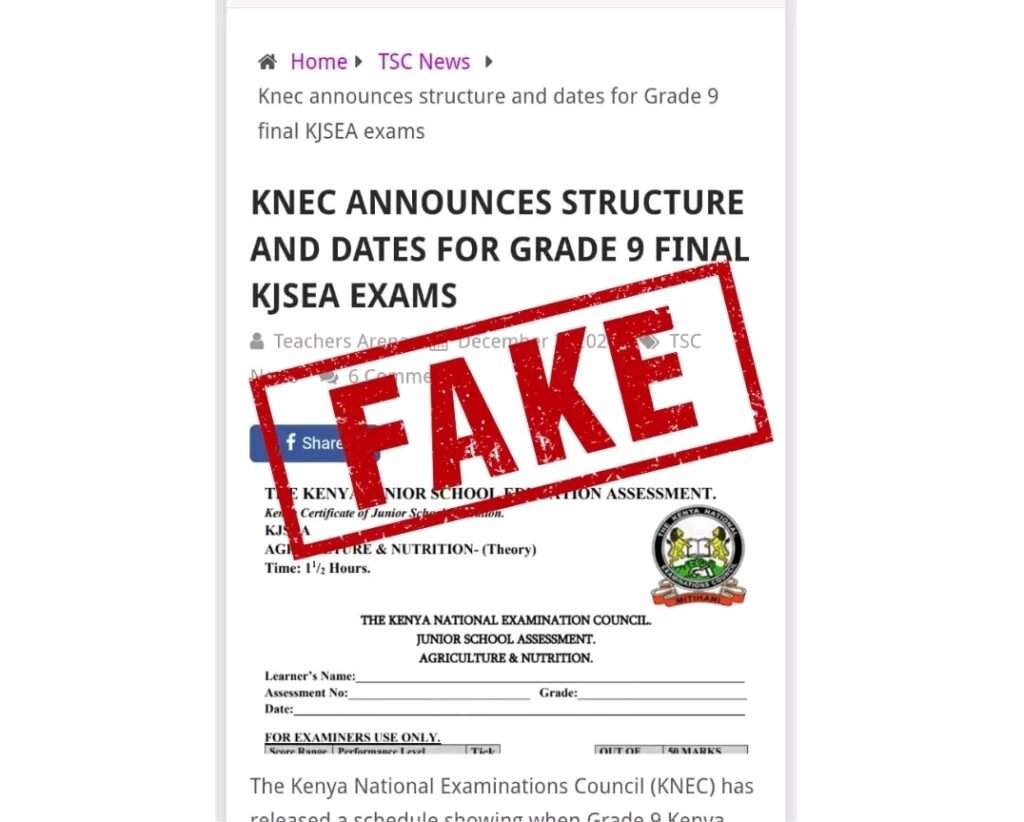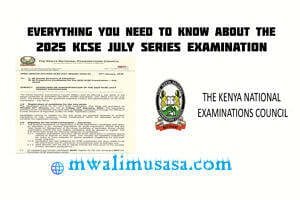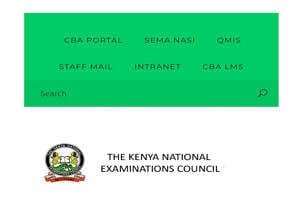Debunking Fake News: KNEC Did Not Announce Grade 9 KJSEA Exam Dates


In recent days, a fabricated report claiming that the Kenya National Examinations Council (KNEC) has announced the structure and dates for the Grade 9 Kenya Junior School Education Assessment (KJSEA) has been circulating online. The report, complete with a forged document, has been debunked as fake news, causing unnecessary confusion among teachers, students, and parents.
Here is what you need to know to avoid falling victim to such misinformation:
Understanding the Fake Document
The falsified document mimics KNEC’s official format, listing subjects such as “Agriculture & Nutrition (Theory),” and includes fields for learner details and grades. However, KNEC has officially discredited this document and the information it contains, marking it as fabricated.
Why This Matters
This fake announcement has caused concern among educators, parents, and students who may have taken it as legitimate. With the education sector already undergoing significant changes, including the ongoing Junior Secondary School (JSS) reforms, spreading unverified information undermines trust and creates unnecessary panic.
How to Verify Official KNEC Announcements
To ensure you are accessing legitimate information regarding exams and educational assessments, follow these steps:
- Check the KNEC Website: Always refer to www.knec.ac.ke for official announcements. The website is regularly updated with verified information.
- Follow Verified Social Media Pages: KNEC and the Ministry of Education maintain official accounts on platforms like Facebook and Twitter. Look for verified badges to avoid fake pages.
- Consult School Administrators: Schools receive formal communication from KNEC and the Teachers Service Commission (TSC). Confirm any updates through your child’s school administration.
- Avoid Unverified Sources: Be wary of blogs, social media posts, or forwarded messages that lack credible citations or links to official documents.
- Cross-Check with News Outlets: Reputable media outlets often cover significant educational updates. Cross-referencing with them can help confirm the authenticity of information.
Combating Misinformation
Teachers and parents play a critical role in stopping the spread of fake news. Here’s how you can help:
- Educate Others: Share the correct information with your networks to counteract the false report.
- Report Fake News: Platforms like Facebook and Twitter allow users to flag fake content. Reporting suspicious posts can help reduce their reach.
- Stay Informed: Regularly engage with credible education-focused platforms and news sources to stay updated on policies and assessments.
The Role of KNEC and TSC in Restoring Trust
KNEC and TSC must continue to swiftly address and debunk fake news while reinforcing communication channels. Transparent and frequent updates will help rebuild confidence in official announcements, especially during this critical time of educational reforms.
Final Thoughts
The fabricated KJSEA exam announcement serves as a reminder to always verify information before acting on it. By relying on trusted sources and encouraging others to do the same, we can prevent misinformation from derailing Kenya’s educational progress.
Stay informed, stay vigilant, and let’s work together to promote truth and accuracy in our education system.







